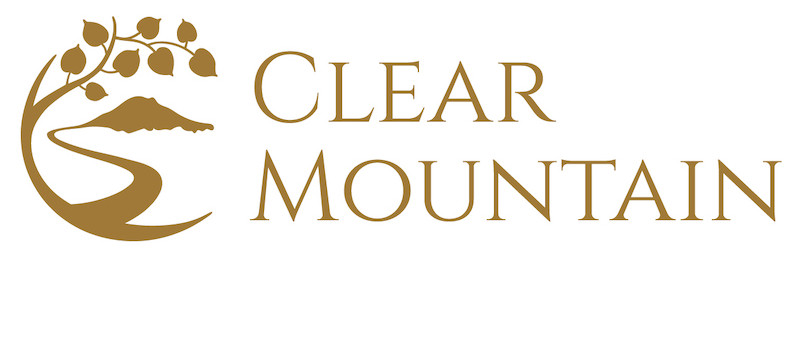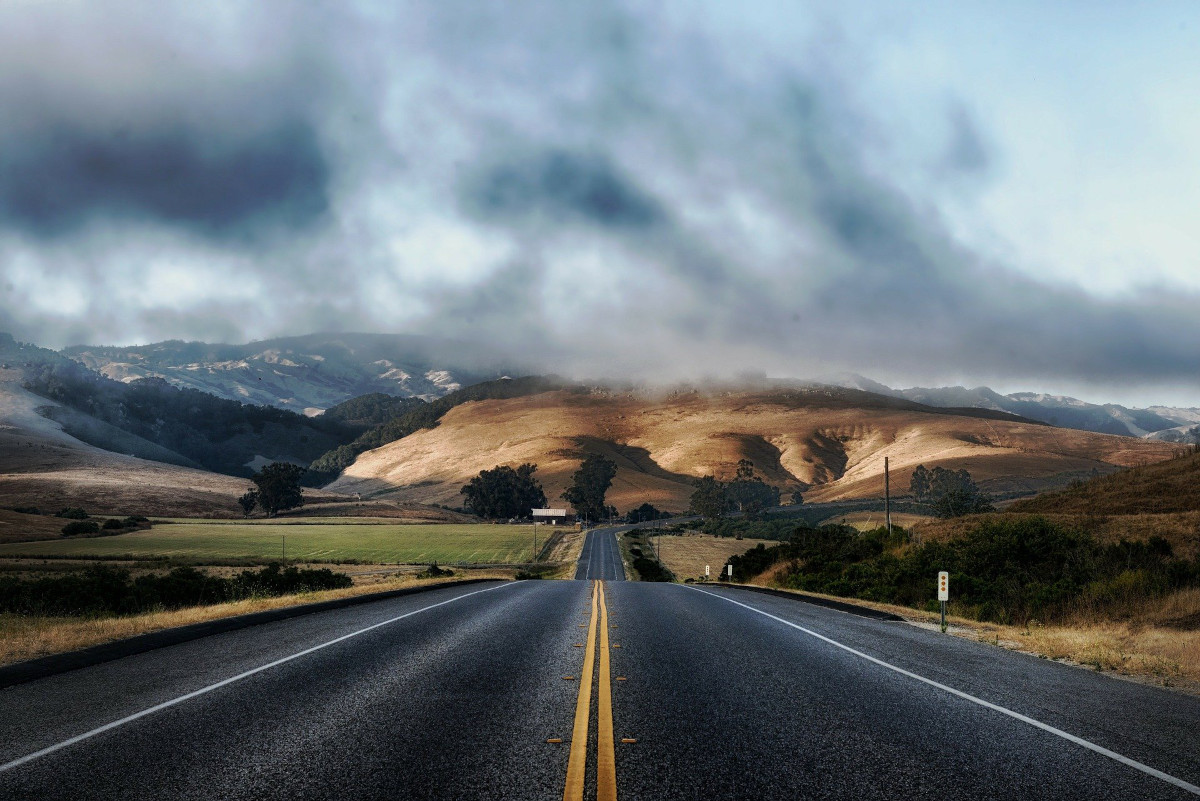My plan was to walk from Escondido, a town South of LA, to Metta Forest Monastery by a circuitous route totaling about ninety miles and passing through Thich Nacht Hahn’s Deer Park Monastery.
Things started badly. Greyhound kindly scheduled my trip to Escondido such that I would inevitably miss my transfer and end up stranded in a town twenty miles from where I’d expected to start the walk. Five dollars would buy a public bus ticket from there to Escondido, but, as our order doesn’t use money, my tudong began at the bus station in Oceanside.
The city made clear to me within fifteen minutes that this was meant to happen. Feeling a bit hungry and apprehensive at the unplanned and largely un-previewed walk, I hadn’t been off the bus more than three minutes when a Thai lady approached as if from nowhere, her hands filled with food. She offered a Whopper and chocolate crepe at 12:54. After a quick meal, I turned to see an old man of color from the adjacent bench come sit next to me: “Good to see another spiritual brother.”
In a deep voice seeming to echo from an old church hymn, Anthony opened up about of his past in the marines, the demons and alcoholism he faced when he returned from war, and the faith which had brought him back to his feet. “I meditate sometimes at the center down South,” he rumbled, referring to the well-known ashram established by Yogananda, “I think all the faiths have to stick together, like they did after the shooting at the synagogue down the way a while back. All the congregations — the Christians, the Muslims, the Jews — marched together after that.” We spoke for a while about my walk and his favorite psalms, and when I asked what he was doing at the bus stop, he told me that he’d been waiting to find and help another homeless vet. “But,” he smiled, and shrugged as if to acknowledge the man’s absence, “that’ll happen on God’s time, not Anthony’s.”
His words echoed with me throughout the trip. To walk on faith is to surrender to a time not one’s own that is measured in long miles and small kindnesses.
Feet lightened by the crepe’s sugar rush and conversation, I began walking along the highway from Oceanside to Escondido, the monotony of strip malls and dry fields broken only by a half-Laotian man pulling over to offer a ride. I refused, as the blessings of tudong demand a walking pace. After four hours, I approached a door-to-door solar energy salesman for directions and was asked in return, “Please, how can I keep mindfulness better during my day?” We spoke for a time about meditation, and he shared his faith: “There’s a saint in the Mormon tradition who they say meditated for three hours every morning. During my two-year mission, we prayed three times every day, and I felt so close to God. Now I have a two-year old and this job, and it’s hard to find the time.”
I refused his spontaneous offer to buy me a meal, as it was after midday, and as we parted ways, he remarked, “They teach that in heaven we’ll truly understand all the goodness we had in our lives. If you ever doubt the importance of your walking pilgrimage, don’t. It makes a difference.”
Dusk had begun to creep through the city, and I was looking for a stand of trees I could duck into for the night. However, I was still in the midst of suburbia, and ran into five high school boys before a place to rest. One cocked his head and stopped to ask what I was.
“A Buddhist monk.”
“So, could Gandhi really float?” I couldn’t tell if this was a sincere question or not.
“Maybe in water.”
“Well, what does meditation let you do?”
“See clearly. Be happy.”
“That’s dope.”
On a darkening street five minutes later, a large large man stepped out of his car and asked how he could calm his mind.
“It’s not like my life’s out of control,” he looked down shyly, “but it’s definitely not in control. The people close to me say I’m a negative person, but I think I’m positive. I’ve never seen a monk before.” We spoke for ten minutes before I walked on, leaving him with a Luang Por Sucitto CD and what I hoped were encouraging words.
The robes seem to bridge religious divides. From Mormons to Catholics, Wickans to “Slow-ologists”, people of every faith approached me during the week to speak about hopes and tragedies. The archetype of the renunciant transcends specific belief systems, and the streams of every tradition find a confluence. I left the walk humbled by the Buddha’s wisdom in establishing a form of such clarity and power.
I walked for several more hours through the darkening strip, passing the sleeping figures of homeless cradling half-empty 40’s as I looked for a place to sleep. Their tragedy spoke more loudly for its nearness to the brightly-lit restaurants, and I felt grateful for the day’s reminders that something deep and blessed runs even below LA’s asphalt. Finally, at 9 pm, I scrambled up an embankment behind a hotel and lay down to in the grasses’ broken gold.
Over the next several days, I experienced time and again that kindness which holds the world together and only becomes truly apparent when one walks as both symbol and supplicant. I received a bottle of water from a tired woman on the side of the freeway, a sandwich from an anxious Vietnamese lady who couldn’t believe that I was “from Buddha”, at least ten offers for rides, and a summary of faith from a pastor outside of Starbucks. I accepted a bag of fruit from a woman who had set out looking for me after hearing on Facebook that there was a monk on pilgrimage around Ramona. I listened to Slim Shady and talked about Buddhism with a cop who insisted on giving me a ride through a dangerous stretch of road (“Before I let you in, you’re not hiding a bazooka under there or anything, right?”). Even the longest day’s walk on two pieces of fruit and a granola bar echoed with blessings of another kind, the grasslands at dusk filled with coyotes and clouds of sagebrush.
The week reminded me of why our tradition continues its practice of tudong. The world needs to see the spiritual goal the robes symbolize, and we need to be reminded of the goodness which constantly supports us and begs our gratitude. The Dhamma is timeless and the aspiration universal.
For most, I think the above account should be plenty. But, as some might be interested, I’ve pasted the rest of my journal below.
May 11th
Seeing me repacking my gear after hiking several hours through the morning’s rain, a latino man offered to buy me a donut and coffee at a neighboring shop. The owners of The Golden Donut turned out to be a Vietnamese and Laotian couple, who offered three more donuts, a croissant sandwich, and another cup of coffee. I walked on in a daze of caffeination, hyperglycemia, and gratitude until, an hour later, I turned to see a woman and her daughter running across the street towards me. Catholics, Maria and Aurora smiled at my refusal of their proffered twenty dollars, and told me to wait as they went to Jack-in-the-Box (the principles of vegetarianism surrender on Tudong to the sacred nature of the unsolicited offering). Hours after this, a cop pulled up and asked what I was doing, her voice ringing with curiosity and kindness more than anything. I refused three peoples’ offered rides and arrived at Deer Park Monastery late in the afternoon, where I spent the next day meeting the community.
May 14th
Having set out from Deer Park the previous afternoon, I woke on a patch of grass barely out of sight of the road, and walked several hours before going for alms. After hours of waiting outside a grocery store, I heard a Vietnamese woman exclaim, “Are you from Buddha?!” She bought me a Subway sandwich, chips, and a box of granola bars before asking me to pray for her and a friend who’s having back surgery the following day. On the highway from Escondido to Ramona, I was offered four oranges by a latina woman and three rides, one from a Thai man who’s been to Wat Pah Pong and nearly cried when he knelt for a blessing.
May 15th
In Ramona, a young latino man spoke to me outside a gas station about how he hasn’t given himself to a single church, but attends several because of the community they provide and the good they do. He’d just spent the previous day handing out food with the Seventh Day Adventists. “I don’t think we should refuse anyone food,” he grinned as he handed me an apple and banana from his car. An hour later, a woman approached me in front of Albertsons.
“Thank you for holding the stillness in the midst or all this mess,” she smiled, and told me about how she’s tried to slow her life down these past few years. “I’m a slow-ologist,” she laughed, “I was so rushed before, and then ten years ago I was frantically brushing my teeth when something in me said, ‘Slow down. Wait for me. I’m worth it.’ Since then, I’ve tried everything I can to slow my life down. Thank you for being here.” Others stopped with stories and greetings, but only one offered the gift of a granola bar. I believe the world always gives you at least one day of hunger on tudong to keep you sharp and inspire you to gratitude.
I walked into state-owned grasslands until 10 pm when, twelve miles in, I found myself facing a gate with two huge signs declaring, “Private Property Beware Attack Dogs”. Google maps had failed to mention that the public trail ended in a private road through miles of ranch. I hiked most of the night to cover the twelve miles back, spurred on by a sense of adventure and the cold.
May 16th
I made it into Ramona tired from the night’s walk, but grateful to have arrived in time for alms. Outside of a Starbucks, a woman in her twenties offered a bagel, another some tea and mints, and a pastor named Garry fifteen minutes of reflections on how only Christ might cleanse my sins. He was well-meaning, but also a bit hotter than the cup of mint tea. A few Albertsons employees handed me five slices of of left-over pizza in a ziplock bag, a woman named Reenee a timid “Bless You” over a sandwich, and several other passerbies various gifts.
As I prepared to head out of the library and back onto the highway, I heard someone behind me say, “You again!” The voice belonged to a large woman in her fifties who I had inexplicably encountered time and again over the previous few days, her van pulling over to offer me a ride becoming a strangely dependable sight, her concerned frown at my refusal equally reliable. She had come to the library to check on an overdue movie for one of the head-injury patients she cared for, and took our meeting once more as a sign that she absolutely had to do something for me. “I know what it’s like to live homeless,” she confided, “I used to be an addict and lived in the dry streambed on the outskirts of town with my husband and the immigrants. You can do it, but it’s not easy. I’m supposed to help you. It’s why we keep meeting.”
Somehow, her tragedy then explained her kindness now. I see time and again how the cracks left by hardship on peoples’ faces allow the world in where sometimes the porcelain smoothness of privilege permits no entry. I relented and let her buy me a coffee and some allowables for the road.
As I began back along the highway, a cop pulled over and asked if he could give me a lift past the most dangerous stretch. As Eminem blared in the background, he asked what Buddhism teaches, and also where I’d been sleeping at night. In return, I asked about his faith, and he described how he considers his duty as an officer an embodiment of his faith. “We’re mostly not like those guys you see on the news,” he apologized, “most people understand and appreciate us.”
Twenty minutes after he dropped me off, a woman pulled to the freeway’s shoulder and approached me with a bag of oranges and apples. “I was looking for you,” she smiled, “I drove all around town trying to find you.” When I asked how she knew to look for me, she responded that it was on Ramona’s Facebook that a monk was wandering nearby, and that she had known where to drive because someone had just posted that they’d seen me on the highway. “I just wanted to make sure you had everything you need. It’s going to get cold tonight.” After several long days of walking, little sleep, sporadic food, and no way to gauge the impact of what can, in the darker moments, seem an archaic and pointless practice, it meant a lot to hear about tudong’s ripples. The next day, I arrived at Wat Metta, grateful to all those who helped get me there.


